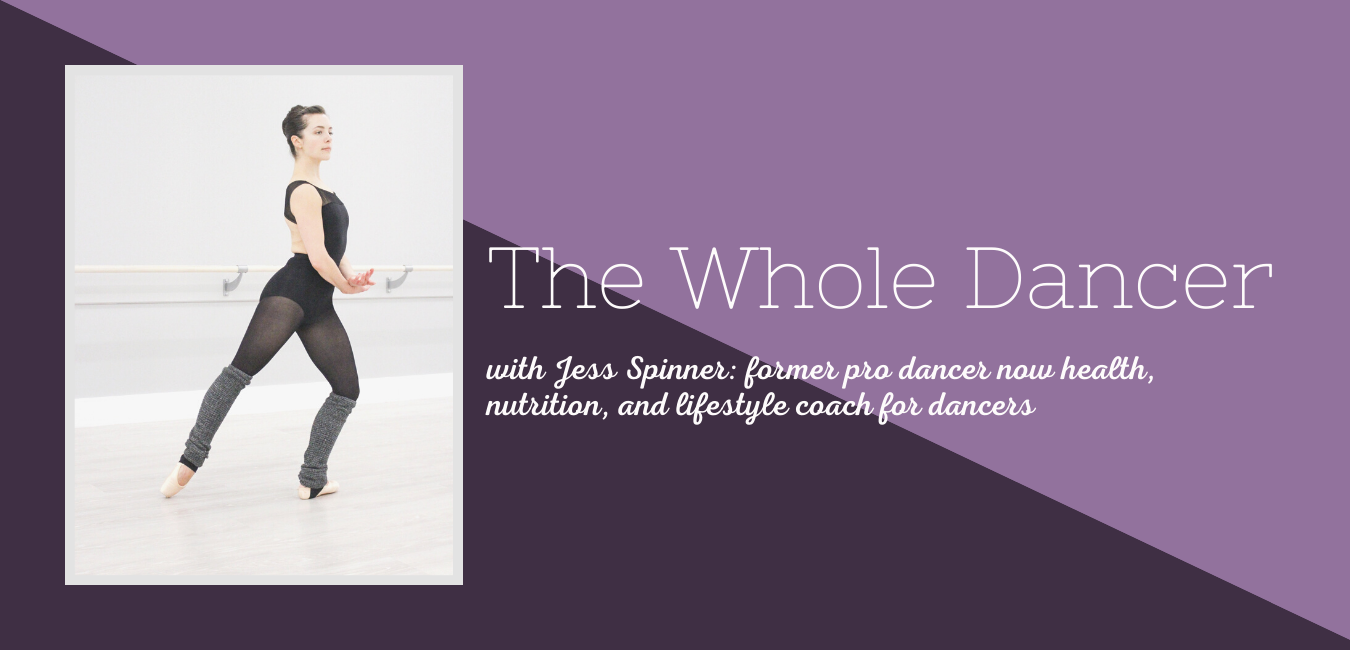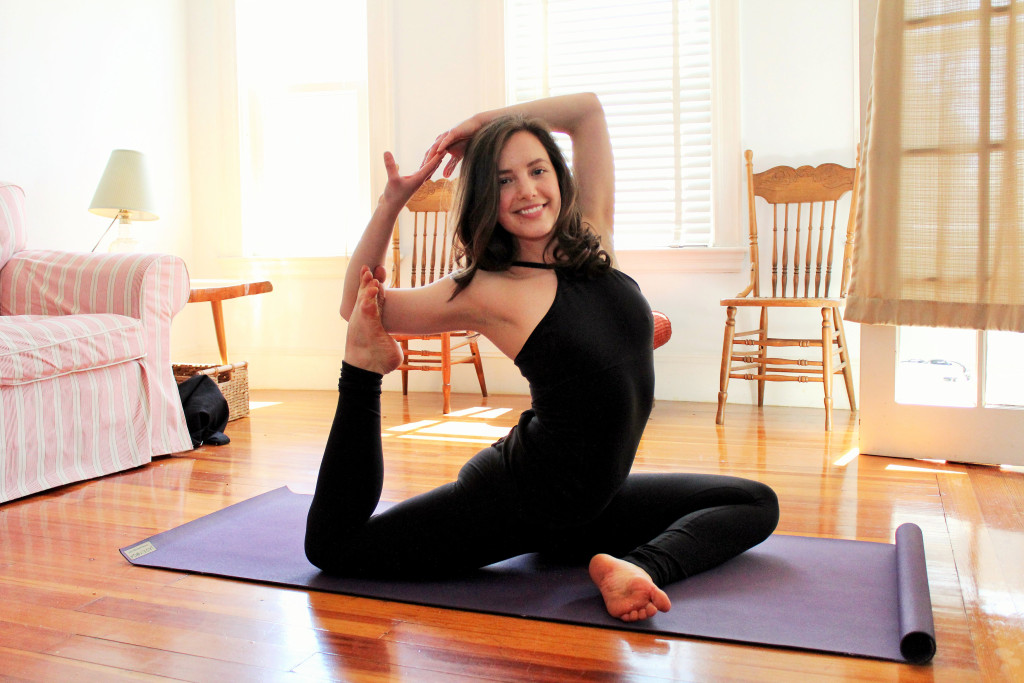The fear of weight gain pervades the journey of many (most) dancers.
Here’s the thing-your weight over time will change. Dancer weight gain, especially during time off, can happen. When you take a day, week, or a month off from dance, the inclination is to cut back on food or to increase your exercise or both.
This was a struggle for me. I had major body image issues for most of my dance training and career. The fear of weight gain was very real, and time off magnified those worries.
Dance and weight
Dancers tend to strive for an “ideal” number on the scale. Or you might decide that if you could reach a specific number, everything else would fall into place. You tell yourself you’ll get the job, the promotion, the role if only you could reach that magic number.
This leads to unhealthy, often restrictive, habits and sets you up for injury. There’s a lack of attention and focus on proper fuel. More importantly, this prevents you from achieving a balanced relationship with food.
Even the thinnest of dancers might create an overstressed approach to time off. They compensate with food or movement in some way. When my clients relax over a break, it’s often followed by, “but now I feel really guilty.”
When left unchecked, that guilt from downtime can result in restrictive patterns or overexercise.
Will you gain weight if you stop dancing?
When I felt my time pursuing dance should end, weight gain was one of my biggest concerns. This obviously stems from all the fear around taking any sort of time away from the studio.
Now, as I’ve shared, my relationship to food and my body wasn’t in a good place for the entirety of my dance career. However, when I made the decision to stop dancing I ended up in some incredibly supportive circumstances that allowed me to heal.
My co-workers at my new job were extremely dedicated to exercise. We worked out together, and I found a community that I desperately needed as I left my dance identity behind.
Taking yoga, without a mirror, allowed me to feel the strength, power, and ability of my body without concern for appearances. Were my body image issues instantly healed? No, but I was on my way.
I allowed myself to eat whatever I wanted but committed to honing into my hunger and fullness cues. Something I work on with my dancer clients consistently is the understanding and implementation of allowing all foods. Only then will you see that you can get to a place of making discerning choices where you’re seamlessly balancing nutrient-dense meals and enjoyable indulgences.
You have to stop caring what other people think.
In addition to the shifts in mindset and approach to food and movement, to find peace in your body whether you’re on a break or your dance journey is ending, you have to stop worrying about what other people think.
Dancers get obsessed with the judgment of others. Not just your teachers or artistic director, but the people you meet and your non-dance friends. You probably worry that those lay-people won’t think you look like a ballerina if you don’t fit into a specific mold.
If you know you’re putting your best foot forward, that’s what’s most important.
This stress around judgement and societal perception lends itself to emotional overeating. One of the most common food practices among dancers is to undereat early in the day which often leads to overeating later.
So, did I gain weight?
No.
When I stopped obsessing over food and my body I was able to settle into a weight my body easily maintained. It was actually lower than the weight I felt stuck at towards the end of my dance career (but not as low as my borderline disordered low).
During a break or when you stop dancing, you may in fact gain weight. That’s ok too. If you gain weight during time off, and you’re in a good place with food and your body, things will likely shift again when you’re back up to your full training schedule again.
This is true for COVID times as well. I’ve heard of weight gain (or perceived weight gain) from many dancers and clients. You know by now that dancing at home is not the same. It’s a struggle even for dancers at the top of the field.
If you’ve gained weight during COVID
First, give yourself grace. We have to acknowledge the massive stress of this time. You’ve had to shift your training, schedule, location, and a host of typically predictable and comforting factors in life. That’s stressful.
You can’t dance full out, and possibly, you’re dancing for fewer hours. It’s possible you’re turning to food for comfort. You may have gained weight. It’s ok. Weight gain as a dancer will happen. How you respond to it is important.
Do your best to seek out other ways to cope with the stress. Find support-whether that’s with a health coach, psychologist, or friends.
When you get back in the studio, if you’re in a good place with food and your body, things will come back into balance. This is what happens with time off. Your weight may shift upward, it may stay exactly the same, or for some it could go down.
When you allow your body and its cues to guide you, you’ll accept the natural fluctuations of hunger and satiety. Then, you’ll be working with your body instead of against it.
Open Up About Your Weight Concerns
On a recent group coaching call in The Dancers’ Best Body Course + Group Coaching Program, one of the participants said she had never spoken out loud about her struggles with food and body. I’d say this is the norm.
Dancers are often worried about looking weak or being judged if they’re feeling challenged in achieving their body goals in dance. If you’re struggling, I guarantee you’re not alone.
If your dance journey has ended you too can heal. More and more, I’m working with retired professional dancers to find a place of peace around food and their bodies. Elite Best Body Coaching isn’t just for aspiring and professional dancers. Working through this 7 step process once your dance journey has ended will allow you to find your body’s healthy, balanced place.


“under eat early in the day which often leads to overeating later.”
I feel so called out
Hey Emily! It’s such a common tendency among dancers. I don’t want you to feel called out!! Do you have any questions about adjusting the habit?
This is a great article! Wish there were coaches like you when I quit dance and let go of my dream of becoming a professional bullet dancer. At the time, I was unwilling to return to my anorexic eating disordered ways to achieve the “ballet body” that I needed to be professional….it was a long journey, but my body image is mostly healed and I’m now helping other women heal theirs too!
Pingback:"What Is a Ballet Body?" - The Whole Dancer